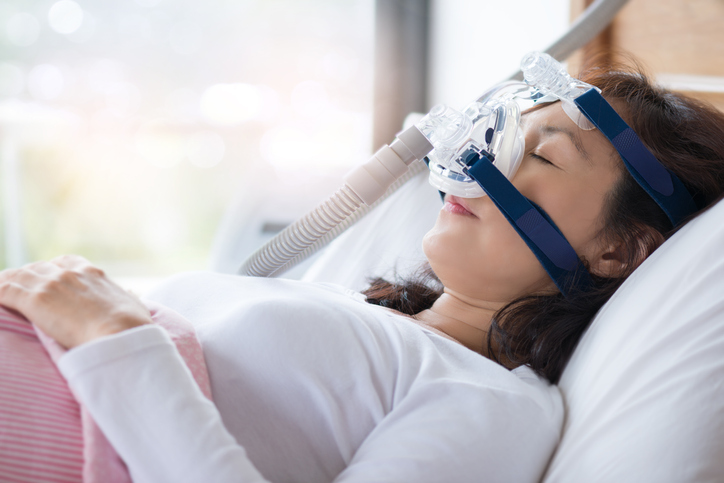
Sleep apnea is a serious medical condition that can have life-threatening consequences. Unfortunately, many people avoid seeking treatment, because they think that they will need to use a CPAP machine, which can be uncomfortable and hard to get used to. While it may sound strange, you can receive alternative relief from sleep apnea by calling your dentist. Your dentist can help with CPAP therapy, but they can also offer other treatment options. This information will help you make the right decisions about treating your sleep apnea.
There are treatments beyond CPAP therapy.
Most people associate sleep apnea treatment with CPAP machines, which require users to wear a mask while they sleep that dispenses forced air to keep the airway open. This is an effective treatment that works well for many people. However, some people can’t adjust to wearing a CPAP mask or simply prefer not to, and those people may be good candidates for oral appliance therapy. This treatment involves the use of a custom-made appliance that sits in your mouth and gently repositions your lower jaw and your tongue to make sure your airway stays open.
It can take time to adjust to your chosen treatment method.
Sleeping with any kind of device in your mouth or on your face can be a challenge. For most people, it takes a few weeks to completely adjust to their treatment. Your dentist can help you create a plan to gradually increase your usage, until you can sleep as normal. Don’t give up on a treatment because it initially feels uncomfortable. Instead, talk to your doctor or dentist about possible adjustments to improve your comfort.
Some people benefit from multiple treatments.
Depending on the severity of your sleep apnea, your dentist may recommend that you try both a CPAP machine and an oral appliance. These two treatments working together may provide a better level of relief for some people.
If you’re been diagnosed with sleep apnea in Chicago, make an appointment at University Associates in Dentistry to find a treatment that works for you. For more information, call (312) 704-5511.



